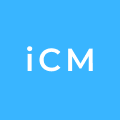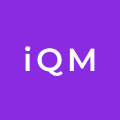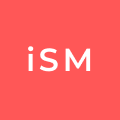At a Glance
- Today, serialization has moved from being a luxury option to a necessity.
- Pharmaceutical companies are hiring contract development and manufacturing organizations (CDMOs) to develop solutions that maintain drug quality while avoiding supply chain problems.
- Pharmaceutical serialization lets manufacturers keep accurate track of their inventory wherever it may be.
As more pharmaceutical and chemical companies move to digitize their operations, they’re looking for ways to track raw materials and finished products through the manufacturing cycle. One way to track these products is through serialization.
“Serialization is the assigning of a predetermined coding type to each product item, assigning it a distinct identity” for tracking and tracing its location in the supply chain,” RFXcel.com states. A simple definition calls serialization, “the process of assigning a unique identity to each saleable product item,” according to Neurotags.com.
Pharmaceutical companies that have gone digital are starting to use serialization to track and trace their products throughout the supply chain. The industry is constantly looking to improve its tracking systems to combat counterfeiting, theft, packaging and storage errors. Companies are also worried about their products being altered after leaving their plants.
Pharmaceutical companies often hire contract development and manufacturing organizations (CDMOs). Using digital labeling methods such as barcodes and QR codes (a type of barcode) helps serialize the supply chain, making tracking raw materials and finished goods easier.
30-40% of all medicines circulated in the developing countries are counterfeit.
5-7% of all medicines circulated in the developed countries are fake.
Counterfeit drugs pose a serious threat to the public’s health. They also damage the reputations of legitimate companies and the pharmaceutical industry globally.
CDMOs worldwide face challenges when implementing a robust pharma serialization solution. Streamlining manufacturing and distribution processes while understanding their client’s unique requirements is challenging.
Serialization Challenges Faced by CDMO
Some of the challenges a CDMO faces while implementing pharmaceutical serialization for track and trace functionality include:
Seamless Serialization for Multiple Clients
CDMOs typically prefer to operate globally, providing comprehensive drug manufacturing and supply services to many pharmaceutical companies. Catering to a diverse client base has its unique set of challenges, especially when it comes to the serialization of individual drugs.
CDMOs need to equip themselves with the right technology to be able to modify their production or manufacturing lines and seamlessly label multiple drugs for different clients.
Regional Compliance
Every country around the world can have different regulations for exporting drugs. Labeling—or serialization—is part of that compliance. CDMOs are expected to take responsibility in terms of drug quality of drugs and compliance with various government rules. Being in compliance is challenging for CDMOs, especially considering the volume of information required to achieve it.
Figure: 1Key Serialization Challenges Faced by CDMOs

Picking the Right Labelling Solution
When it comes to drug serialization, a “one size fits all” approach to labeling solutions doesn’t always work. Assuming a CDMO has a preferred labeling software, there’s still the important decision of choosing:
- Printer types such as thermal inkjet, thermal transfer, lasers
- Printing materials such as paper, film or holograms
- Special formulas to make counterfeiting harder
In terms of label design, everything must meet government codes and regulations. This applies to label layout, orientation, barcode configuration and other design elements. Every label must be printed in time to avoid delaying shipments. CDMOs are pressured to make the right choices for coding and labeling products.
Understanding Market Requirements
While larger pharmaceutical manufacturing companies use an in-house team of analysts and marketing specialists, smaller firms often rely on CDMOs for market intelligence.
When it comes to labelling client drugs, CDMOs need to understand the different markets and their requirements. Using market analysis, CDMOs must decide how many drugs need to be labelled for a particular market, including whether they’re choosing to label randomly or with a centralized approach.
Get Started to learn more about Pharma, request a consultation. CDMOs Can Handle All of Your Business’s Serialization Needs
Overcoming Serialization Challenges
No two CDMO clients are the same and neither are the challenges each CDMO faces. In terms of how each company deals with its serialization issues, they should consider:
- Equipping their workforce with the technical knowledge and details of serialization hardware and software
- Making use of advanced technological applications like Big Data, cloud computing, the Internet of Things (IoT and advanced analytics)
- Understanding how enterprise resource planning (ERP) software, like the Microsoft Dynamics 365 line of modular product, can help them maintain and monitor client data
With the right software and people skilled in its use, a CDMO can manage multiple production lines while meeting drug production requirements for different clients.
Investing in the right partner with experts that understand global pharmaceutical regulations will help CDMOs label and locate their products no matter where they are in the world.
Since CDMOs are not only vendors but also producers, they need to be in constant contact with their clients and suppliers. This includes dealers, wholesalers, packagers and transporters. Using the right ERP will help them maintain transparency at every level while avoiding recalls or stock-outs.
CDMOs benefit by developing flexible templates for their serialization solutions. These templates serve as a blueprint for any pharmaceutical client. Making them flexible lets a CDMO adjust a process to meet the client’s requirements, saving time, effort and money.
Final Thoughts
Drug serialization and labelling pose several challenges for CDMOs around the world. However, managing these challenges is an excellent opportunity for an organization to show its technological skills. When a CDMO has the right team and solution, it can overcome any challenge.
Taking advantage of products like Microsoft’s Dynamics 365 suite of solutions gives pharmaceutical companies access to powerful tools. Included is a way to track serialization, such as customer onboarding and lot traceability to toll manufacturing, from start to finish.
Using a powerful and effective ERP to enhance serialization will help a CDMO combat counterfeiting and theft while ensuring government compliance. At the same time, good software can also help a CDMO establish a more efficient supply chain.
Meeting serialization requirements for pharmaceuticals pose many technical and skill-based challenges. CDMOs worldwide are constantly looking for more efficient ways to handle these challenges. Investing in the right partner can make a big difference.
With the help of cutting-edge applications, a skilled team and a systematic approach toward serialization, CDMOs can establish themselves as leading end-to-end manufacturing and distribution partners.
References: What Is a CDMO (and Why Do You Need One)








